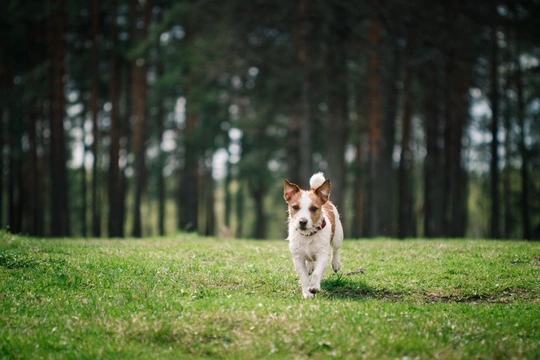
Five top tips for controlling your dog off the lead
In some areas along popular walks and parks it is a requirement of taking your dog there that your dog remains on a lead at all times, but there are plenty of other areas where it is perfectly fine to let your dog off the lead as well, providing that you can keep your dog under control.
A well trained dog should be just as responsive and reliable off the lead as they are on it, and the lead should not be something that you resort to keep your dog in check in place of proper training and reliable responses from the dog.
Well behaved dogs that are properly trained, responsive and streetwise can be kept under proper control without a lead, even on roads and in busy places. This is something that all dog owners should work towards, whether their dogs spend a lot of time off the lead or not. In this article, we will share five basic tips on how to keep your dog under control and get their attention when they are off the lead, assuming that your dog has achieved a basic level of reliability and understanding when off the lead in the first place. Read on to learn more!
Make sure your dog can be trusted
Before you consider letting your dog off the lead anywhere other than in an enclosed dog park or field, it is of course important to ensure that your dog’s behaviour off the lead is responsive and reliable, and that they do not suffer from selective deafness when something more interesting is going on!
This can be hard to achieve for some breeds that have a very strong prey instinct like the Greyhound or the Lurcher, but you should still work with your dog as much as possible to train them to stay close to you when walking off the lead, and come back to you reliably when called.
Be aware of what is up ahead
Maintaining a good situational awareness is vital when your dog is off the lead, so that you can anticipate what is coming up and if needed, recall your dog or put them back on the lead. When walking on the roads, this is especially important when you are coming up to junctions or areas where the pavement is ending, while in fields or the dog park, you should be prepared to recall your dog if they approach another dog that does not want to play, if another owner asks you to, or simply when it is time to go home!
Knowing what is coming up and staying alert in order to respond to changing situations quickly will give you the opportunity to bring your dog back to you without the need for a panic or a rush later on!
Keep a pocket full of treats
Training for new skills involves a reasonable amount of bribery with treats, to keep your dog working and interested in you and your commands. When your dog is trained and will execute commands reliably, you can stop giving the treats every time, and keep them for special rewards.
Recall skills and particularly, keeping your dog interested in you when they have other things to do can be classed as situations in which high value rewards are merited, and so even when your dog is trained for excellent recall and responsiveness, you should still have some treats to hand to encourage your dog to come back to you, even when they don’t want to, in the hopes of earning a prize.
Recall your dog before they go too far
Even if you are in an empty field and have no reason to worry about your dog getting out, running off or getting into hot water, you should still keep a good awareness of where your dog is in relationship to yourself, and keep them within sight and earshot.
If your dog runs out of your sight or is roaming further and further each time, recall them now and then and give them a treat, which encourages them to check back in with you now and then and respond more promptly when you call them. Working on this principle essentially gets your dog doing the checking up and keeping an eye on you rather than you working to keep up with your dog, which makes life easier for the handler!
Have a lead with you
Even if your dog is 100% reliable, comes when called every time and always keeps you in sight, you should carry a lead with you at all times, just in case it is needed. You may be asked to put your dog on a lead around other dogs, need to get your dog home quickly, or find that a certain area or situation that you across to is unsuitable for dogs off the lead.
Always keep a lead with you, and be prepared to use it if you need to.



